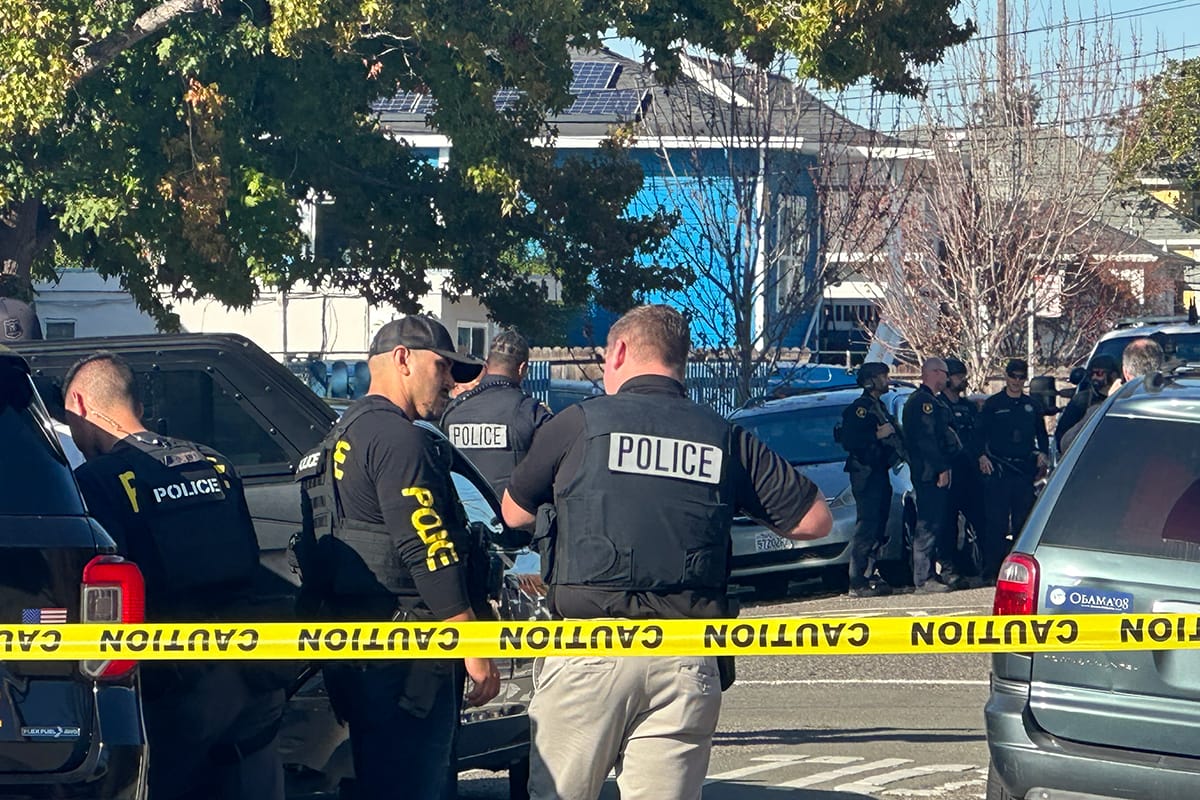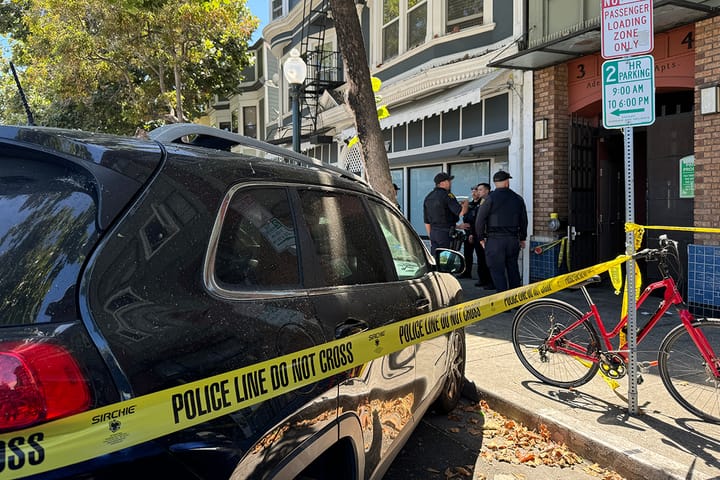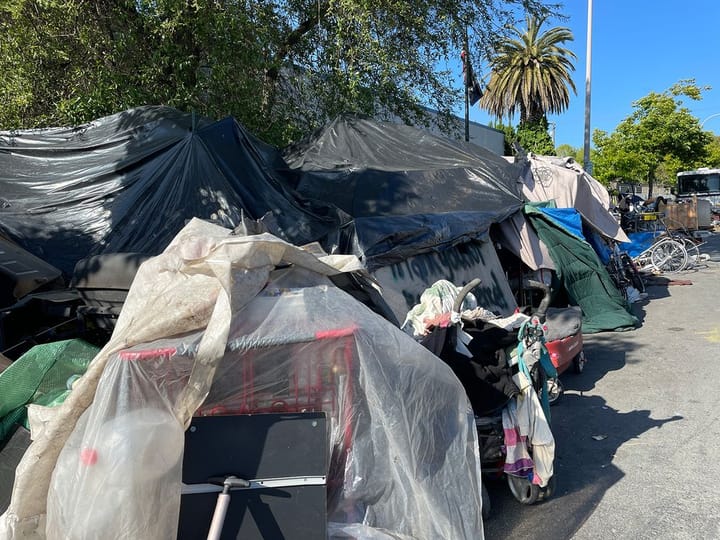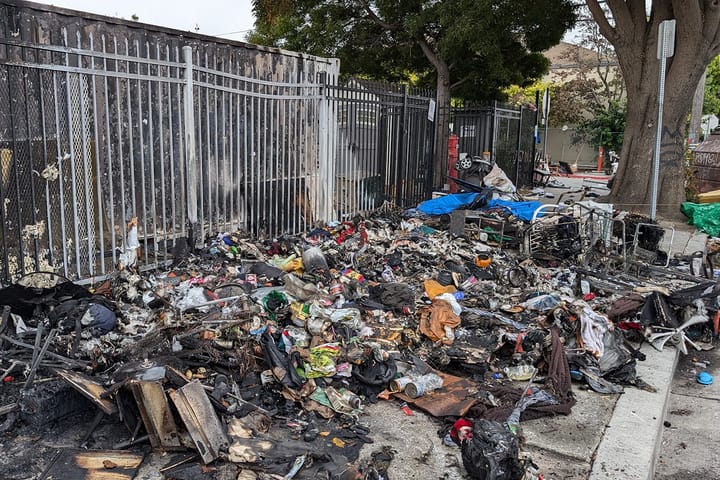Berkeley police may get more surveillance cameras
"I heard loud and clear from my neighbors… they want to feel safe throughout the city that we all share," said Councilman Mark Humbert.
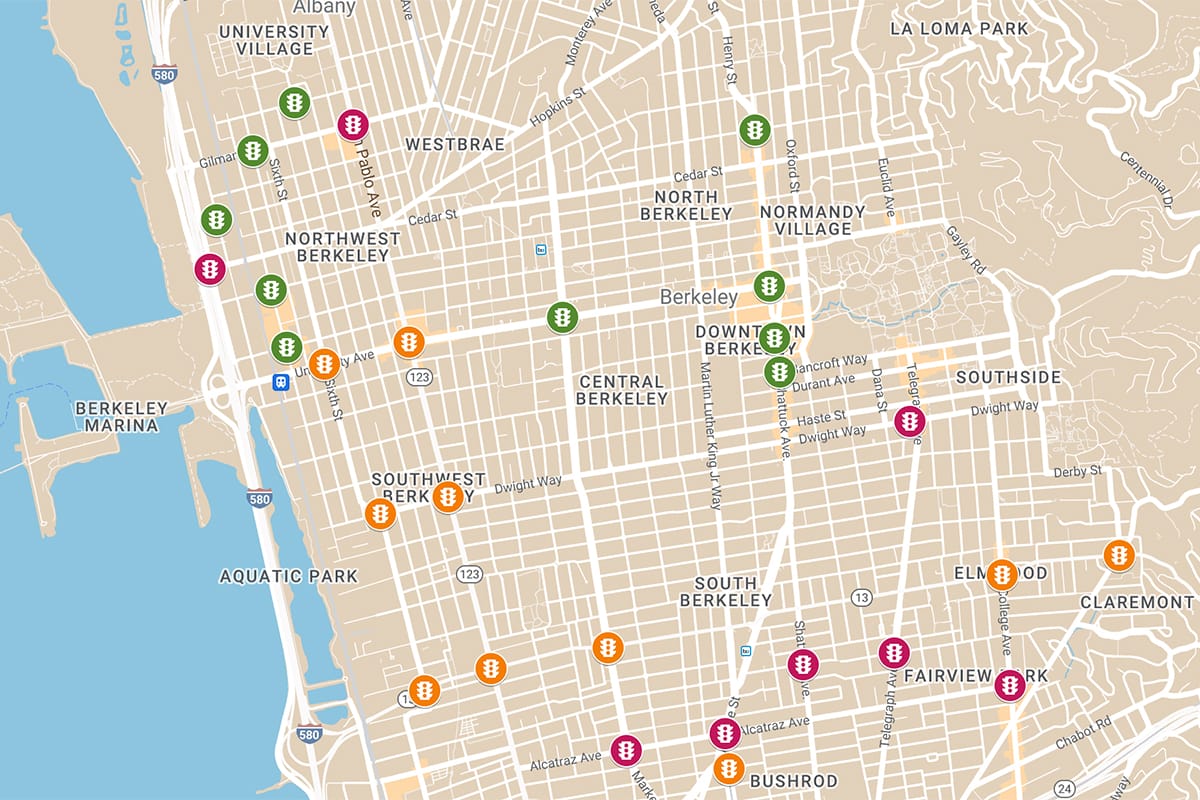
Berkeley officials voted Tuesday night in favor of a proposal to bring new surveillance cameras to the city to help police solve crimes.
"I heard loud and clear from my neighbors… they want to feel safe throughout the city that we all share," said Councilman Mark Humbert, who brought the item forward with colleague Ben Bartlett.
Bartlett called the item a "no-brainer" as he works to keep his constituents safe. He said the increase in violent robberies and the targeting of women and older people led him to consider cameras as a solution.
The camera vote was overshadowed by Kate Harrison's seemingly abrupt decision to resign from the Berkeley City Council in the lead-up to the mayor's race, which she still hopes to win.
Harrison left the meeting before the vote and Councilwoman Susan Wengraf had an excused absence. Sophie Hahn abstained from the vote and the rest of the City Council voted yes.
The item is a budget proposal, meaning it will be considered as part of the budget process later this year. It is not a done deal.
City officials approved surveillance cameras at 10 intersections last year. So far, only one camera has been installed, at Sixth Street and University Avenue. That happened in November.
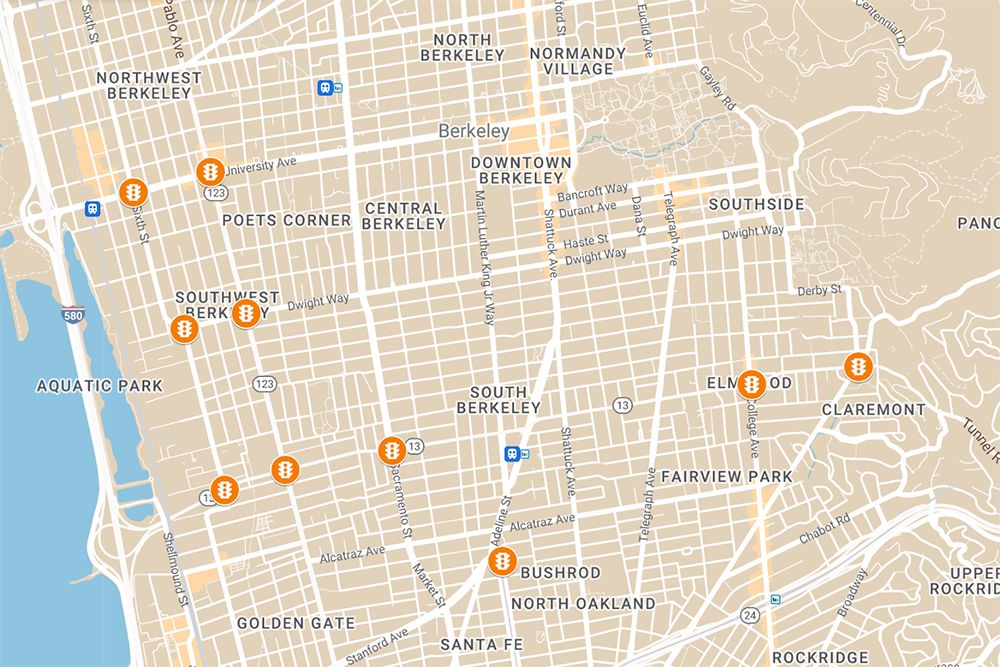
Homicide and robbery detectives have reviewed that footage five times in their work to solve cases, Police Chief Jen Louis told officials Tuesday night.
Louis indicated that the footage may have been useful in two cases but said she could not share details.
The chief said the rest of the approved cameras have been held up due to permitting and the Public Works queue.
Many of the cameras were set to be installed on San Pablo and Ashby avenues, which requires Caltrans approval.
The new proposal from Humbert and Bartlett suggests cameras at eight "priority intersections" along with 10 other intersections that would be "explicitly pre-authorized for potential future installation include."
Louis said the new locations were chosen because they are high-traffic corridors or regular routes of travel for people coming to Berkeley to find victims or "escape after they have done the harm."
Sophie Hahn said she could not support the item because she would need more of an analysis of the proposed locations.
"I do think technology can help us solve crimes but I also know that surveillance can be extremely pernicious," she said. "I am willing to support technology but I don't think we have the right circumstances here."
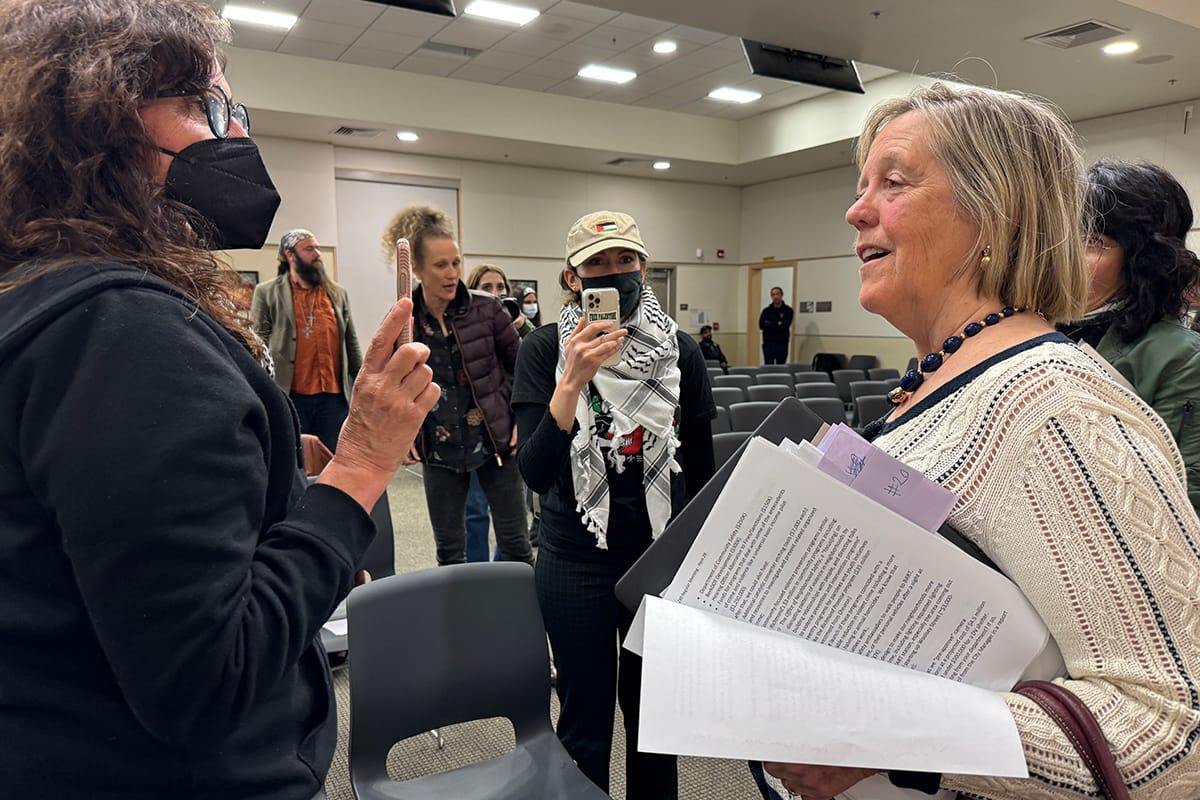
Before stepping down, Harrison said she planned to vote no on the camera item, in part because she thought the money could be better spent on other things. She also took issue with some of the proposed locations, including those in her district.
She also said businesses could fund their own security cameras if they want to have them.
"I just feel we're in a land of overreach here," Harrison said. "We're gonna have cameras on every single corner. We're gonna end up like England."
Hahn and Harrison both said the item needed more review and questioned whether it complied with city rules.
The city attorney said the proposal on the table was compliant.
Mayor Jesse Arreguín pointed out that the item would be going back to the Police Accountability Board for review "in the interest of transparency" even though the code did not require it.
Arreguín also said he felt a responsibility to give Berkeley police "every tool possible" to solve crime, adding that the city's surveillance policy strikes the right balance between privacy concerns and public safety.
"I don't know what more needs to be done," he said.
Councilwoman Rashi Kesarwani said her main concerns at this point were the "brazen commercial burglaries that keep occurring" as well as violent crimes against women. "There's value in these cameras."
"The decision has not yet been made about fully funding this or funding it at this time," Kesarwani said. "Given that it is a budget referral, it is reasonable to move it through tonight."
In addition to fixed surveillance cameras, the city is also working on a plan to install Flock license plate readers around the city that police will be able to use in certain circumstances. That work also remains pending.
Read more about policing in Berkeley.
